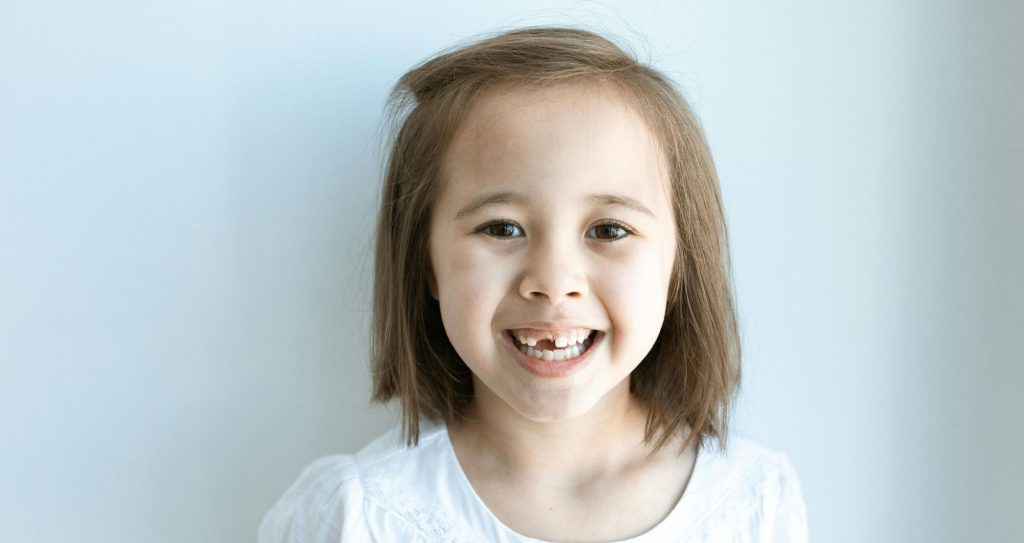Like Santa and the Easter bunny, the Tooth Fairy is a beloved mythical figure. She exchanges baby teeth for money, but just how much should the “Tooth Fairy” be leaving?
A new study from health and beauty tech retailer Currys found that 72% of Brits believed in the Tooth Fairy growing up, and out of the respondents with children, 88% say they keep (or kept if the children are too old now) this tradition alive with their own children.
As Tooth Fairies are silently crowd-funded by parents and guardians across the country, the study also revealed how much they fly in per tooth, and where in the country their contribution to the piggy bank is the highest.
Number show that the London Tooth Fairy is one of the most generous in the UK, leaving an average of £3.35 per tooth, making the entire process worth £67.
The average cost of a baby tooth is £4.20 with some parents paying up to £10
According to the study, the average cost for losing a baby tooth in the UK is £4.20 with some parents paying up to £10. Throughout childhood, from the first central incisors that start falling off after their fifth birthday to age 12 when second molars are lost, a child loses 20 milk teeth. On average, this means some children could be cashing in £84 as a gift from the Tooth Fairy.
In London, the payout is slightly lower, with kids receiving an average of £67 from Tooth Fairy visits.
Most British parents stick to the Tooth Fairy story narrative and leave a coin under the pillow – a majority (38%) leave a one Pound coin while nearly a third leave two Pound coins. Nearly a quarter of parents (22%) think losing a tooth is worth more, slipping £5 under the pillow, while nearly 1 in 10 (7%) leave £10.
In London, it’s not much different, as a little over a third (35%) of parents leave a one-pound coin, nearly a fifth (19%) leave two-pound coins, and almost a quarter (23%) slip £5 under the pillow.
The value of baby teeth varies across the UK, with the highest average payout per tooth in the South East (£3.77), followed by Greater London (£3.35). In comparison, children in Scotland (£3.00) and the North West (£2.99) receive lower amounts.
|
UK region |
Average amount per tooth |
|
South East |
£3.77 |
|
Greater London |
£3.35 |
|
West Midlands |
£3.18 |
|
North East |
£3.15 |
|
Wales |
£3.06 |
|
Scotland |
£3.00 |
|
North West |
£2.99 |
London kids spend their Tooth Fairy money on toys and sweets
Kids don’t get much money of their own, so a visit from the Tooth Fairy is always a lucrative moment. Unsurprisingly, more than half of parents (53%) say kids spend the money on toys, while a third (33%) spend it on sweets.
There are also savers, with nearly a quarter (24%) of parents reporting that the money is being saved for bigger purchases.
Kids in London are not so different, as a bit more than a third (35%) spend their tooth prizes on toys while a bit more than a quarter (27%) spend it on sweets or save it.
Dentist debunking common oral hygiene myths, including “baby teeth don’t matter”
Although losing baby teeth is a perfectly normal part of development, good oral hygiene starts in childhood, and keeping baby teeth clean is important. Dr. Sara Amini, an award-winning dentist in central London, shares the most common misconceptions about children’s oral health:
Myth #1: Baby teeth don’t matter
Fact: Many patients believe that keeping children’s baby teeth clean isn’t important and there’s no point in worrying about cavities since they’ll be replaced by adult teeth. However, not only are baby teeth essential for chewing, speaking, and holding space for permanent teeth, untreated cavities can cause pain, infections, and even affect adult teeth developing underneath, for example losing baby teeth too early can impact jaw development and the space needed for adult teeth.
Ensuring cavities are treated with fillings can prevent bigger issues, particularly as tooth decay (caries) progresses faster in children than adults.
Myth #2: Kids don’t need a dentist until they’re older
Fact: Your child’s first dental visit should be by their first birthday or within six months of their first tooth appearing. Early visits prevent problems and build good habits.
Myth #3: Thumb-sucking in kids is normal
Fact: Most kids stop thumb-sucking on their own by age 4 without permanent damage. However, if they don’t stop thumb-sucking or using a pacifier beyond age 4, it can cause an open bite. If the habit continues, we can help guide them.
Myth #4: Sugar is the only cause of cavities
Fact: Cavities are caused by bacteria that feed on sugars and starches. Poor oral hygiene and frequent snacking also play a role.
Myth #5: Children can’t get gum disease
Fact: Kids can develop gingivitis, the early stage of gum disease, if oral hygiene is neglected.
Myth #6: Orthodontic treatment is for older teenagers
Fact: Although orthodontic treatment typically begins after all adult teeth have erupted, around age 14, sometimes it’s better to start treatment at a younger age, particularly when addressing skeletal and jaw issues.
- Pexels



